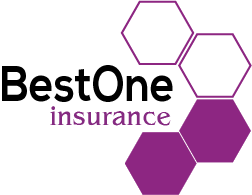Picture this: you’re the proud owner of a rental property, much like a captain of a ship navigating through the vast ocean of real estate. As you sail through property management, you encounter various risks and potential liabilities that could jeopardize your investment. This is where landlord insurance comes into play, offering protection against unforeseen events and liabilities.
But are there specific liability considerations you should be aware of? In this discussion, we will explore the different types of liability coverage, how liability is determined in rental properties, and the importance of having adequate liability limits. So, fasten your seatbelt and prepare to set sail on a journey that will unravel the intricacies of landlord insurance.
Types of Liability Coverage
When considering landlord insurance, it is important to understand the various types of liability coverage available to protect yourself and your property. One type of liability coverage commonly included in landlord insurance policies is general liability coverage. This coverage protects you if a tenant or a visitor is injured on your property and decides to sue you for negligence.
It can also provide coverage if you damage a tenant’s property. However, it is important to note that general liability coverage may have certain coverage exclusions, such as intentional acts or damages caused by illegal activities.
Another type of liability coverage to consider is premises liability coverage. This coverage protects you if someone is injured on your property due to a hazardous condition, such as a broken staircase or a slippery floor.
It can also cover damages if a tenant’s property is damaged due to a maintenance issue. However, it is crucial to know the coverage exclusions for premises liability, such as damages caused by wear and tear or neglect.
If you need to file a liability claim, it is essential to understand the claims process. Typically, you would need to notify your insurance company as soon as possible and provide them with relevant information, such as the details of the incident and any documentation or evidence available. The insurance company will then investigate the claim and determine the appropriate action.
Determining Liability in Rental Property
Determining liability in rental property can be a complex process that requires careful examination of the circumstances and responsibilities of all parties involved. When it comes to liability disputes and tenant negligence, here are a few key points to consider:
Gather evidence: In order to determine liability, it is essential to collect and document evidence related to the incident. This may include photographs, witness statements, maintenance records, and any other relevant documentation.
Review lease agreements: Lease agreements often outline the responsibilities and obligations of both the landlord and the tenant. It is important to carefully review these agreements to determine if any party has breached their contractual obligations.
Consult legal professionals: In complex cases, it may be necessary to seek advice from legal professionals who specialize in landlord-tenant law. They can provide guidance on liability issues and help navigate the legal process.
Consider insurance coverage: Landlords should review their insurance policies to understand the extent of their coverage and any exclusions that may apply. This can help determine if insurance will cover any damages or injuries resulting from liability disputes or tenant negligence.
Determining liability in rental property requires thoroughly examining the facts and legal obligations. By following these steps and seeking professional advice, landlords can ensure that they are adequately protected and effectively address liability disputes and tenant negligence.
Importance of Adequate Liability Limits
Having adequate liability limits is crucial for landlords to protect themselves and their properties in case of any potential accidents or incidents. When it comes to landlord insurance, there are different liability coverage options available to choose from. However, it is important to have comprehensive liability insurance that offers the necessary protection.
Comprehensive liability insurance covers bodily injury, property damage, and personal injury claims arising from accidents or incidents on the rental property. This type of insurance protects landlords from potential lawsuits and provides financial security in case they are found liable for damages or injuries.
One benefit of comprehensive liability insurance is that it helps cover the medical expenses of anyone injured on the rental property. It also covers the cost of repairing or replacing damaged property. Additionally, this insurance can cover legal fees and court costs if a lawsuit is filed against the landlord.


